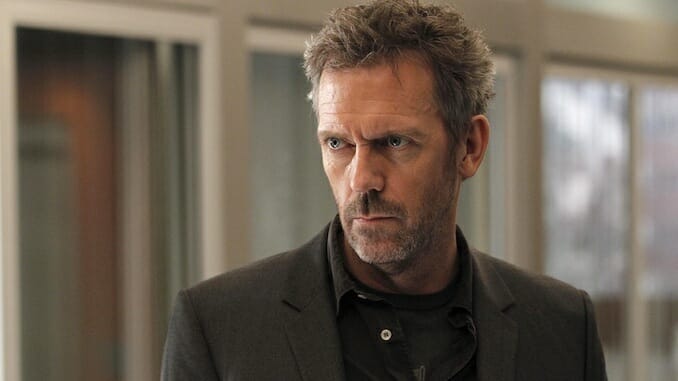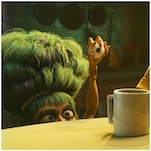TV Rewind: House M.D. Was an Artful Master of Misery and Loneliness
Photo Courtesy of FOX
Editor’s Note: Welcome to our TV Rewind column! The Paste writers are diving into the streaming catalogue to discuss some of our favorite classic series as well as great shows we’re watching for the first time. Come relive your TV past with us, or discover what should be your next binge watch below:

Spring 2022 marks the 10th anniversary of the series finale of one of the most beloved American medical dramas, House M.D. That’s a good enough excuse to talk about a less-discussed aspect of David Shore’s iconic show. Beyond its numerous intriguing cases and characters, House gave us a protagonist who was particularly relatable and appealing to introverts by the way he embraced loneliness and misery.
Dr. Greg House (Hugh Laurie) was the Michael Jordan of diagnostic medicine (and being a jerk) on television. He could afford to insult and look down on people because he’d always come up with brilliant diagnoses that other doctors couldn’t. Based on thorough observations and spot-on assumptions, he had the superiority to tell people how he knew them better than they knew themselves. But this arrogant, cynical, and snarky demeanor was only a disguise to hide his pain.
House truly believed that his leg injury, which left him in severe agony and with a limp for the rest of his life, made him meaner. That it was the main cause of his narcissistic and morose behavior that alienated him from creating and maintaining human connections. He blamed his condition to justify his assholery. Yet, the truth is that House wasn’t a fan of people even before his impairment. He sucked at relationships: he was a selfish lover and a self-absorbed friend. His disability just gave him an excuse for being like that without consequences. Most of the time, however, he liked being a social outcast because he longed for solitude. Yet, he seriously thought his life would magically turn content if only he could heal his leg.
Eventually, though, House learned to use his misery. He identified with being the “genius cripple diagnostician” as others saw him. Trauma and being in pain fuelled his obsession to be the best in his medical field. In Season 1’s “DNR” episode, House treats a legendary Jazz musician who can no longer play due to ALS (Amyotrophic Lateral Sclerosis). In a conversation. between the two, the patient dissects House’s personality in a matter of minutes. He says that he knows that limp, the empty ring finger, and the obsessive nature of his that drives him to be extraordinary. The reason normal people have spouses, kids, and hobbies is that they don’t have that one thing these two share. But having that one thing comes at a cost. It’s inevitable. Yet, for House, this isn’t necessarily a weakness.
Sad people are interesting. They have wounds. They have a tragic story that triggers sympathy in others. They’re mysterious. But once you reveal their secret, the appeal disappears. House knows this well and just can’t let it happen. He needs to be different from ordinary people because his pain needs to mean something. His gift, the talent of solving human puzzles, is a combination of wit, misery, and compulsiveness. He understands better than anybody that happiness doesn’t inspire the same way sadness and struggle do.
-

-

-

-

-

-

-

-

-

-

-

-

-

-

-

-

-

-

-

-

-

-

-

-

-

-

-

-

-

-

-

-

-

-

-

-

-

-

-

-








































